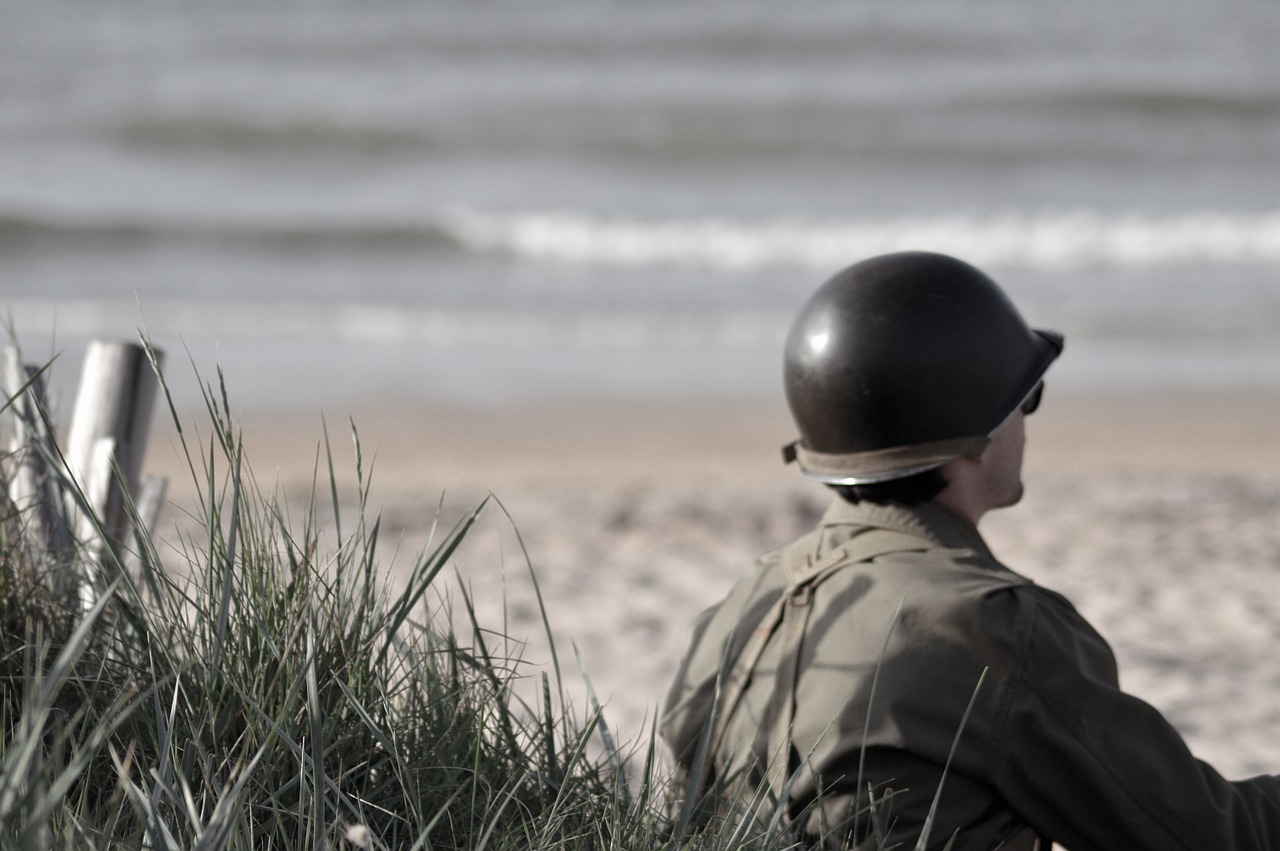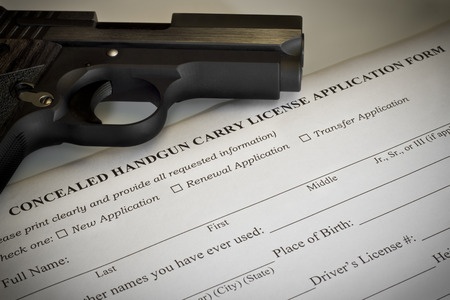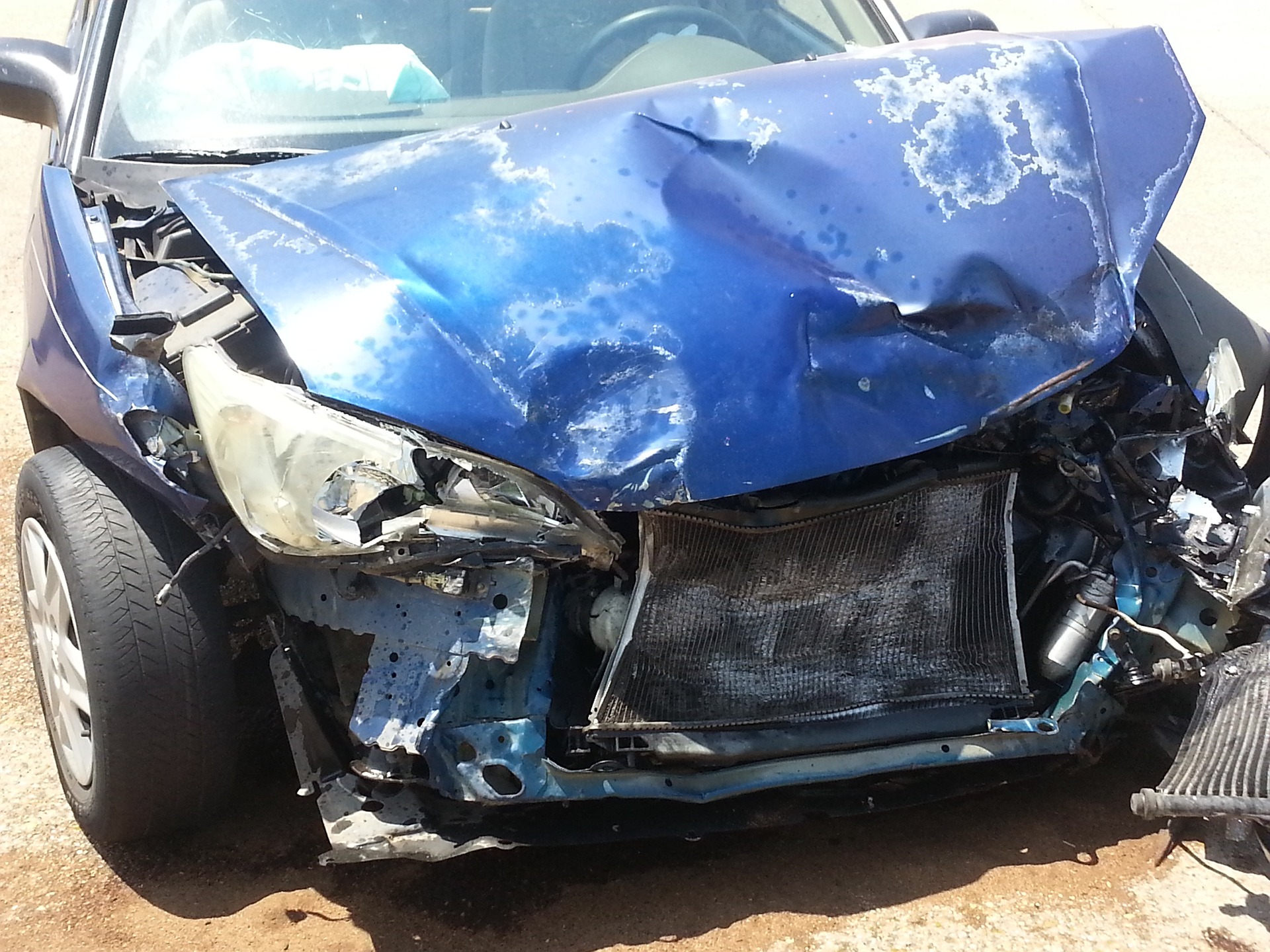Jennifer Englert has grown The Orlando Law Group through the years to allow her team to provide legal assistance to residents of many Central Florida neighborhoods.
Eight years ago, Jennifer Englert and another attorney founded The Orlando Law Group in Avalon Park with a mission to be the area’s “
The concept was well received, so they opened a Lake Nona office nearly six years ago and added a Dr. Phillips office about three years ago. With that growth came expanded practice areas, including business, bankruptcy and personal injury.
Englert shares more about The Orlando Law Group in her own words:
How does The Orlando Law Group raise the bar for clients?
We are a team of highly experienced and dedicated le- gal professionals, each with different areas of expertise. We work together to solve legal problems and provide preventative legal services to solve legal issues before they happen. One key aspect that differentiates us from many firms is the care and compassion we bring to each and every client. Many of our clients become personal friends, provide referrals or are people we’ve worked with side by side while serving within the community.
What is one thing that others don’t know about your business but should?
We pride ourselves on being “Honest, Approachable Attorneys Who Care.” That is more than just a motto to us. At The Orlando Law Group, you can be sure that your attorney possesses both a sharp, experienced legal mind, and a friendly smile that will welcome and comfort you. What’s more, we are serious about preventative legal tactics, work- ing to solve issues for our clients before they blow up into legal messes. Simply put: we are here for you, and we have your back at all times!
How does The Orlando Law Group give back?
We all have charities we care about. We provided pro-bono legal and probate services for the families of Pulse victims and other services through legal aid. We help children by serving as members of Kiwanis, our local PTAs and by helping families with special needs children. We serve veterans by helping them obtain benefits. We are also involved in our local chambers of commerce and other business groups. Part of the reason we care so much is because we have a veteran on staff, many of us are parents, and a few of us have children with special needs. We draw upon our own struggles to aid others.
How have you evolved and diversified to ensure you truly are a full-service law firm?
Once we discovered how helpful it was to have various experts in several types of law on staff, we began to assemble a team with diverse backgrounds and expertise. We never wanted to send clients away to other firms or counsel, as working together provides better results in all legal matters. We realized how thankful clients were to have such a wealth of legal help close to home, so we strategically positioned our offices close enough to one another so that we can still work as a team and remain close to large neighbor- hoods around Central Florida.
Copyright © 2017, Lifestyle Magazine
CLICK HERE to download article in magazine format (PDF)
There are many factors you should consider before hiring a lawyer. The truth is that law is a complicated matter. Some legal matters such as fighting a speeding ticket do not necessarily require you to hire an attorney. However, if you are charged with driving under the influence (DUI) or other serious crimes, you should hire legal help as soon as possible. Legally binding contracts and agreements have a great deal of legal jargon that you might not understand. Hiring an attorney to assist you in these contracts can save you a lot of money and prevent future complications.
While legal situations vary from person to person, to follow are 3 reasons why you should seek legal representation:
- It can save you money. Fees vary from lawyer to lawyer, but most of the time attorneys will provide you with a free initial consultation. During the first meeting, you can evaluate the potential benefit of hiring a lawyer and further discuss what it will take to reach the goal of that particular challenge or project.
- A good attorney will negotiate your settlement. An experienced lawyer who truly comprehends the law and your situation can properly assess how the case might resolve at trial. However, sometimes attorneys can negotiate with the other party and come to a fair settlement and avoid it all together.
- Lawyers know the procedures. If you are not a lawyer, you will lack the knowledge necessary to properly fill out or file the court documents. Failing to do this or meet the required deadlines will put your case in jeopardy as it can either be delayed or completely dismissed.
While there are many “legal” tasks you can tackle on your own, it’s best to consult a professional in-order-to ensure you do not have to worry about unexpected issues later.
The new workplace isn’t really a place, it’s more a state of mind. You jump from meeting to meeting, talk over lunch, pitch over drinks, and create a “pop-up office” anywhere that has a place for your laptop or tablet, and of course Wi-Fi. For some who think smart logistically, you will manage to schedule full days to work solely at home, and other days where you move from meeting to meeting. Or, better yet, park yourself in a location, with coffee of course, and have your meetings come to you. We do suggest, however, that you purchase coffee or food, as those establishments have a business to run too.
If you want to succeed in this new frontier of business, being flexible in terms of time and space is vitally important. To follow are some key points that will help you steer in and around this territory:
Remain Charged
Is there an outlet you can plug into? Even if you’re at seventy percent – do it! The worst time to not have a fully-powered laptop is during a client meeting. And you can’t have your phone die when that unplanned conference call dial-in number gets texted to you. Whenever you have the chance to charge your devices, don’t miss it. You should also keep a portable charger in your bag for emergencies.
Do You Know the Hot Spots?
If you’ve already been practicing the impromptu office, you know the importance of free Wi-Fi and a calm place to work in-between meetings. Keep yourself organized by making a list of your favorite coffee shops, restaurants and hotel lobbies where you can tuck away in a corner and get 20-60 minutes of work done during downtime. This really helps when your local gathering place is too packed to be productive.
Create a Functional Work Bag
This is your office. You will want your laptop (or tablet), laptop plug, cell phone plug, headphones, toothpaste, toothbrush, lipstick (if it applies), cardigan (some places can be quite chilly), safety pin, hand cream, stain stick, Shout Wipes, breath mints, toothpicks, notebook, pen, pencil, mini deodorant — and that’s on a light day. Don’t go crazy, but just know that the day you don’t pack something is the day you will desperately need it.
Be Ready to Tackle AM and PM
There may be meeting-packed days that will go from scrambled eggs to cocktails, so you need to find outfits that can work all day long. If you’re a male, a solid suit. For women, this task is a bit more difficult. Great advice is that you can “always bet on black”. A little black dress lets you look professional during the day, and glamorous at night if you dress it up with sparkly jewelry.
Be Prepared to Pilot
Map out your day in advance. The worst feeling is to be crisscrossing town from one meeting to another, never knowing if you’ll make it on time. Having a solid plan of attack allows you to not get unnerved by those unexpected challenges and hurdles that tend to get thrown in your way. There are great apps to help with that. If you’re really organized, you will use the app as you actually plan the meetings so that it makes, even more, sense logistically.
These are just a few tips to help you be more prepared and less frazzled. As always, we’re here to help you navigate even the murkiest of waters so that you can focus on your business.
So, go forth business warriors! This is the way business moves. Find your best way to move along with it.
How to make your board meeting more productive
Many board meetings are actually “bored” meetings. Leadership brings together their board members only to quickly present the material so they can get back to their “real” work. Without realizing it, you’re doing the company a disservice as the value of your board, if you have the right people, can be a tremendous source of insight and solid advice. The board’s job is to review the company’s financial performance and strategy and help provide counsel to the executive team. It’s up to you to manage them effectively.
Some boards are highly functional, many are not. Sometimes dysfunctional boards are a result of having investors who don’t really understand their role on the board or have the right skills or experiences to be helpful. Sometimes poorly run boards are a function of the executive team not knowing how to get the most out their boards.
To follow are some thoughts on how to make your interactions with your board more productive.
Communicate Frequently and Proactively
Do you wait until the actual meeting to correspond with the board? We advise that you send the board short, to the point, update emails at least monthly, especially if you meet quarterly or even less frequently. This keeps the board in-the-loop and does not give them the opportunity to come to their own conclusions about what is going on. Plus, you will be top-of-mind to people that matter and they will feel comfortable advocating on your behalf. Discussions Versus Presentations Many board meetings become really long slideshow presentations where management takes the board through pages and pages of financial results and plans. Send the presentation ahead of the meeting and instead use the time to have an open discussion on the key points.
Do you wait until the actual meeting to correspond with the board?
We advise that you send the board short, to the point, update emails at least monthly, especially if you meet quarterly or even less frequently. This keeps the board in-the-loop and does not give them the opportunity to come to their own conclusions about what is going on. Plus, you will be top-of-mind to people that matter and they will feel comfortable advocating on your behalf. Discussions Versus Presentations Many board meetings become really long slideshow presentations where management takes the board through pages and pages of financial results and plans. Send the presentation ahead of the meeting and instead use the time to have an open discussion on the key points. Your goal should be to have open dialogue with your board and take advantage of their expertise and experience.
Distribute Financial Information Prior to the Meeting
Financial information should be sent out 72 hours before a board meeting. If you send it out the night before, you’re practically guaranteed that it will not be read before that morning’s meeting. Remember, these are busy people too. Focus on Solving Strategic Issues Instead of wasting your time walking the board through financial information they should already be familiar with it. Spend your time walking through a few key decisions you’re trying to make and get their input on the topic. Set this expectation up front and your meeting will be more targeted towards results. Boards will only discuss the information you provide them and will mostly get off track if your agenda or your management style allows them to.
A Call Before the Meeting
If possible, have a quick call a day or two prior to the meeting with key members who will be reporting. This ensures you are up-to-date and onboard with what they will be presenting. This also helps you to create the agenda. Never be surprised at a board meeting. If you’re surprised at a board meeting it’s on you.
They Talk the Talk, Are They Walking the Walk?
Many things get decided at board meetings. If you took away actions — follow up. If a board member agreed to do something, hold them accountable. As with most meetings, much progress is squandered by lack of follow up. Lack of follow-up could put a real damper on progress and the board members who are living up to their promise on a particular task will become frustrated.
Meet in Person When Possible
There are times when you need to offer some board members the option to call-in to a meeting. That’s fine every now and then, but that usually results in people falling off the call, or becoming distracted. There is no way they’re as productive when it’s just voice. Also, having a well-functioning team with a high degree of trust in each other and confidence in each other’s opinions is critical to a successful board. And you simply can’t build relationships on the phone.
No Cell Phones Please
Help them be their best selves by banning electronic devices if you want a productive meeting. Schedule a 15-minute break in the middle of your meeting and inform people that there will be sufficient time to check in on their email during the break. Obviously, there are exceptions if they have something mission critical going on that might pull them away. But this should be the exception, not the rule.
Be Realistic With the Time Needed for a Meeting
If you’re trying to “get through your deck” and get back to work, then an hour is plenty. If you truly want input, discussions and relationships, schedule accordingly. Build Social Relationships Amongst Your Board Members We’re all so busy, but at least once or twice a year, schedule something that is purely social. We find it’s effective to hold a board meeting prior to the “social event” as they’re already together as a group.
Boards take work. But the best boards are super critical to your success and you get out of them what you put in.
If you have any questions about forming a board, or making the one you have even better, please feel free to schedule a consultation with one of the outstanding attorney’s at The Orlando Law Group PL.
By Beth Kassab, The Orlando Sentinel
A state arbitrator on Friday sided with a homeowner who challenged the way Poinciana’s homeowners association, one of the largest in the state, held its election of board members.
The arbitrator threw out the Association of Poinciana Villages’ results from a February election and ordered the group to hold a new election in August for the sprawling community of 26,000 homes in Osceola and Polk counties.
In question was whether Avatar, Poinciana’s developer and still a significant landowner, could cast one vote for every house it says it could potentially one day build on land it owns that is still undeveloped.
As a result of that practice, Avatar has been able to elect its representatives to the HOA board and maintain control over the 44-year-old community of more than 50,000 people, including the collection of fees, argued homeowner Martin Negron, who filed the complaint against the association.
He claimed he lost the February election because Avatar improperly cast more votes than it should have by claiming it could build hundreds of homes on land that is covered by marsh and wetlands. The association is made up of nine villages, which all conduct elections.
The order said counting so many votes for construction that may not be approved by the local county government “improperly diluted the votes of other members of all the associations.”
“Avatar may not maintain control of the sub-associations and thereby the association in perpetuity by an imaginary regulatory scheme where maximum density is the only law applicable to building a home,” wrote Terri Leigh Jones, an arbitrator with the state Department of Business and Professional Regulation, which oversees HOA elections.
Jeffrey Smith, an attorney with the Orlando Law Group who represented Negron, said the order is a win for the little guy — the people who own homes in Poinciana.
“It gives much more power and sets a good precedent for the members so they can control the community in which they live and not leave it up to some large corporation,” he said. “At least it puts the members on a fairer playing field with the developer.”
Avatar must now provide proof that it’s able under local and state codes to build the number of homes it uses to determine the amount of votes it will cast, according to the order.
A spokeswoman for the association said officials are still reviewing the order and did not provide immediate comment.
A separate lawsuit filed by three homeowners is challenging the association in Polk Circuit Court, while homeowners in another Avatar community, Solivita, also are suing the developer.
Keith Laytham, a resident of Solivita and an advocate for residents throughout Poinciana, called the arbitrator’s ruling a win.
“Fasten your seat belt because we ain’t done yet,” he said.
Copyright © 2017, Orlando Sentinel
CLICK HERE to see article on the Orlando Sentinel
The qualifications necessary for an individual to be able to obtain a concealed carry license in the state of Florida are found in Fla. Stat. 790.06. For purposes of obtaining a concealed carry license, Fla. Stat. 790.06 defines concealed firearms and/or weapons as handguns, electronic weapon or devise, tear gas gun, knife or billie club but, does not include machine guns. If you are successful, your concealed carry license will be valid throughout the state of Florida for a period of seven (7) years.
To qualify for a concealed weapons license in Florida the applicant must:
- Be a resident and citizen of the United States or a permanent resident alien of the United States;
- Be at least 21 years old or older;
- Not suffer from a physical infirmity which prevents the safe handling of a weapon or firearm;
- Not be a convicted felon; (unless your right to own and possess a firearm was restored by executive clemency);
- Have not been “committed” for drug abuse, found guilty of any drug crime or had an adjudication withheld for any drug crime, all within the last three (3) years from the date of your application;
- Not chronically and habitually use alcoholic beverages or other substances to the extent that his or her normal faculties are impaired. It shall be presumed that an applicant chronically and habitually uses alcoholic beverages or other substances to the extent that his or her normal faculties are impaired if the applicant has been convicted under s. 790.151 or has been deemed a habitual offender under s. 856.011(3), or has had two or more convictions under s. 316.193 or similar laws of any other state, within the 3-year period immediately preceding the date on which the application is submitted;
- Not been adjudicated an incapacitated person under Fla. Stat. 744.331 or, must have waited five (5) years after such determination of incapacity was removed by court order;
- Has not been committed to a mental institution under chapter 394, or similar laws of any other state. An applicant who has been granted relief from firearms disabilities pursuant to s. 790.065(2)(a)4.d. or pursuant to the law of the state in which the commitment occurred is deemed not to have been committed in a mental institution under this paragraph;
- Not had adjudication of guilt withheld or imposition of sentence suspended on any felony unless 3 years have elapsed since probation or any other conditions set by the court have been fulfilled, or expunction has occurred;
- Not had adjudication of guilt withheld or imposition of sentence suspended on any misdemeanor crime of domestic violence unless 3 years have elapsed since probation or any other conditions set by the court have been fulfilled, or the record has been expunged;
- Not been issued an injunction that is currently in force and effect and that restrains the applicant from committing acts of domestic violence or acts of repeat violence; and
- Not prohibited from purchasing or possessing a firearm by any other provision of Florida or federal law.
Even if you are not prohibited from the purchase and possession of a firearm under Florida or federal law, the following circumstances could still prevent you from qualifying for a concealed carry license in Florida:
- If you have a “withheld adjudication” or “imposition of sentence suspended” on any felony or misdemeanor crime of domestic violence you must wait until three (3) years after all conditions set by the court have been completed. F. S. 790.06(k)
- Under Federal law, if you have an indictment or information pending against you, you cannot qualify for a concealed carry license until that case has been disposed of.
- The Department of Agriculture and Consumer Services shall deny a license if the applicant has been found guilty of, had adjudication of guilt withheld for, or had imposition of sentence suspended for one or more crimes of violence constituting a misdemeanor, unless 3 years have elapsed since probation or any other conditions set by the court have been fulfilled or the record has been sealed or expunged. The Department of Agriculture and Consumer Services shall revoke a license if the licensee has been found guilty of, had an adjudication of guilt withheld for, or had the imposition of sentence suspended for one or more crimes of violence within the preceding 3 years. The department shall, upon notification by a law enforcement agency, a court, or the Florida Department of Law Enforcement and subsequent written verification, suspend a license or the processing of an application for a license if the licensee or applicant is arrested or formally charged with a crime that would disqualify such person from having a license under this section, until final disposition of the case. The department shall suspend a license or the processing of an application for a license if the licensee or applicant is issued an injunction that restrains the licensee or applicant from committing acts of domestic violence or acts of repeat violence. F. S. 790.06(3)
Author: Jeffrey W. Smith, The Orlando Law Group
Jeffrey W. Smith is an attorney for The Orlando Law Group. His practice focuses on veteran appeals, family law, and civil litigation. He is a veteran of the United States Marine Corps, serving in Operation Desert Storm in the Middle East and Operation Restore Hope in Somalia. Jeffrey lives in Oviedo with his family.

F. S. 790.01(3)(a) states that F. S. 790.01(1) (that makes it a first-degree misdemeanor for a person to carry a concealed weapon without a concealed carry license) does not apply to a person who carries a concealed weapon, or a person who may lawfully possess a firearm and who carries a concealed firearm, on or about his or her person while in the act of evacuating during a mandatory evacuation order issued during a proclamation declared by the Governor (unless the proclamation specifically provides otherwise) pursuant to chapter 252 or a state of emergency declared by a local authority pursuant to chapter 870. As used in this subsection, the term “in the act of evacuating” means the immediate and urgent movement of a person away from the evacuation zone within 48 hours after a mandatory evacuation is ordered.
The 48 hours may be extended by an order issued by the Governor. Note the distinction between a “proclamation” and a “state of emergency” in that if the evacuation order is by proclamation of the governor, the lawful individual may be in possession of a firearm in a public place (unless provided otherwise specifically in the proclamation) as contrasted to a “state of emergency” under F. S. 870 that only permits the possession of a firearm by a lawful individual in a public place during the “first 48 hours” of the evacuation period whether you have a concealed carry permit or not.
Author: Jeffrey W. Smith, The Orlando Law Group
Jeffrey W. Smith is an attorney for The Orlando Law Group. His practice focuses on veteran appeals, family law, and civil litigation. He is a veteran of the United States Marine Corps, serving in Operation Desert Storm in the Middle East and Operation Restore Hope in Somalia. Jeffrey lives in Oviedo with his family.
Worried About Selling a Firearm Legally in Florida?
You’re not alone—Florida gun laws are complex, and one wrong move can carry serious legal consequences.
If you’re unsure about how to sell a gun legally or just want peace of mind, our attorneys can help.
📞 Call (407) 512-4394 or [contact us here] before you make a sale.
👇 Now, read on to learn what Florida law actually says about private firearm sales.
How to Sell a Gun in Florida
When selling a firearm, there is a lot of regulation; however, most of it is designed for transactions between Federally Licensed Firearms Dealers (FFL) and private citizens. The good news is that when selling a firearm is conducted between two private citizens, the rules are simple and there is no wait time, but there are still a few legal requirements. In Florida, both persons (seller and buyer) would need to be residents of the State of Florida (or of the same state otherwise); be at least 18 years of age, and must not have any legal disabilities. For a complete list of legal disabilities, see the federal statute at 18 USC 922(g). This is true even for handguns, as opposed to the federal age requirement of 21 years of age for an individual to be able to purchase a handgun from an FFL dealer. The private seller is not required to ask if the buyer has any legal disabilities, but if the buyer tells you or you suspect the buyer may have a disability, you cannot legally sell to them. It would also be prudent to either copy or given technology today, take a picture of the person’s identification evidencing their Florida or same state residence in case any residency issues come up in the future.
Can I Sell My Firearm to Someone Outside of Florida?
What should I know if I want to sell to someone out of state? A private resident of Florida (or any state for that matter) may not legally purchase or sell any firearm directly from or to any private individual that is a resident of another state, period. However, there is a legal exception to get around this prohibition on private firearm sales to persons that are not residents of the same state as the seller.
Federally speaking, a firearm is not transferred until “delivery”. The steps that need to be taken to sell or purchase firearms from private individuals residing in different states are: 1) The firearm must be delivered and picked up at an FFL, for a small fee, in the buyer’s state. 2) The buyer will need to fill out the Form 4473 and obtain the criminal record check and approval in their resident state. 3) The sale must be lawful in the buyer’s resident state. With these steps, you will have a lawful delivery and sale according to federal regulations. Please note again that you cannot legally, directly deliver the firearm to the resident in the other state. Also, be wary of “strawman” transactions. It is a felony for a person to purchase a firearm for a non-resident or for someone with any legal disqualification. If you have reasonable cause to suspect the purchaser is a “strawman”, do not make the sale to that person. F.S. 790.065
What if I’m trying to sell a firearm to someone under the age of 18? Short answer, don’t do it. However, for those of you who enjoy tangling with the intricacies of the law, when the other party is under 18 years of age, it gets rather complicated. It is a felony to sell, give, or lend any person under 18 any weapon, UNLESS you receive prior written permission from one of the minor’s parents or legal guardians. Failure to obtain the parent’s or legal guardians prior written permission is a violation of F.S. 790.17 and a felony if the weapon is a firearm. Florida law forbids the possession of handguns, but not shotguns or rifles, for persons under the age of 18. (even though the Federal law requires you to be at least 21 years old to purchase a handgun from an FFL dealer.) There are a few exceptions to a minor’s legal use and possession of handguns, such as for target practice or handgun instruction courses. You will also still need prior written permission from the minor’s parent or legal guardian to engage in those activities as well. If the minor is 16 years or younger, it’s a felony for them to use the firearm, unless they are supervised by an adult legally permitted to have the firearm. If you were involved in their possession of a firearm, you could also be held civilly liable for damages caused by the minor. As earlier stated, this is a situation best entirely avoided.
Author: Jeffrey W. Smith, The Orlando Law Group
Jeffrey W. Smith is an attorney for The Orlando Law Group. His practice focuses on veteran appeals, family law, and civil litigation. He is a veteran of the United States Marine Corps, serving in Operation Desert Storm in the Middle East and Operation Restore Hope in Somalia. Jeffrey lives in Oviedo with his family.

But keep in mind that even if you contribute the full $1200 – $1800 dollars to the GI Bill, in order to qualify to receive the benefits you must also have an honorable discharge; AND a high school diploma or GED or in some cases 12 hours of college credit; AND you must also meet the requirements of one of the categories below:
CATEGORY I
- Entered active duty for the first time after June 30, 1985
- Had military pay reduced by $100 a month for first 12 months
- Continuously served for three years or two years, if that is what you first enlisted for or if you entered the Selected Reserve within a year of leaving active duty and served four years (the 2 by 4 program)
CATEGORY II
- Entered active duty before January 1, 1977
- Served at least one day between 10/19/84 and 6/30/85, and stayed on active duty through 6/30/88, (or through 6/30/87 if you entered the Selected Reserve within one year of leaving active duty and served four years)
- On 12/31/89, you had entitlement left from Vietnam-era GI Bill
CATEGORY III
- Not eligible for MGIB under Category I or II
- On active duty on 9/30/90 AND separated involuntarily after 2/2/91
- OR involuntarily separated on or after 11/30/93
- OR voluntarily separated under either the Voluntary
- Separation Incentive (VSI) or Special Separation
- Benefit (SSB) program Before separation, you had military pay reduced by $1,200
CATEGORY IV
- On active duty on 10/9/96 AND you had money remaining in a VEAP account on that date AND you elected MGIB by 10/9/97
- OR you entered full-time National Guard duty under title 32, USC, between 7/1/85, and 11/28/89, AND you elected MGIB during the period 10/9/96 – 7/08/97
- Had military pay reduced by $100 a month for 12 months or made a $1,200 lump-sum contribution.
In the event you are discharged from the military under some other characterization other than an “Honorable” discharge, all is not lost. Often times many Servicemembers are able to have their discharge disposition upgraded to Honorable. In that instance, as long as the Servicemember otherwise qualifies, the MGIB benefits should then be available. Keep in mind though that to “otherwise qualify” means that you contributed at least $1200 dollars to the MGIB while on active duty and that the Servicemember served on active duty for at least two years AND has a high school diploma or GED or in some cases 12 hours of college credit; AND further qualifies under one of the four previously mentioned categories. Unfortunately, except for some very few rare exceptions, the MGIB is a use it or lose it benefit.
If the Servicemember contributes $1200 dollars and does not complete at least two years of active duty, you lose the benefit even with an Honorable Discharge. If you contribute $1200 dollars and serve two or more years and are discharged with a discharge code that is not “Honorable”, you will not qualify until you have upgraded your discharge disposition and keep in mind, the clock is ticking. If you are not able to successfully upgrade your discharge to Honorable within 10 years, there is a good possibility you will lose the MGIB benefits.
Obtaining a U.S. passport for your child will require slightly more work than it will take to get one for yourself. To start, both parents or guardians must be present when applying for the passport, except in certain circumstances that will be explained below. Every U.S. citizen needs a passport to enter and leave foreign countries, so even your infant will need to complete the following steps, which cannot be done by mail for first time applicants.
The first step is completing application form DS-11, which may be done either in writing or online. The requested personal information includes your child’s full name, date and place of birth, gender, phone number, travel plans and an emergency contact. Next, you must gather supporting documents to be presented at the time you submit the application at a passport office. You will be required to show: evidence of your child’s U.S. citizenship; proof of the parents’ or guardians’ relationship to the child; a photo ID of the parents/guardians or the child; a photocopy of identification documents; and one passport photo of your child.
Evidence of U.S. citizenship may be demonstrated by: a previously issued, undamaged passport; a certified birth certificate issued by the city, county or state; a consular report of birth abroad or certification of birth; a naturalization certificate; or a certificate of citizenship. To obtain certified copies, contact the registrar’s office of the state where your child was born, and be sure to get the “long form”. Evidence of parental relationship may be demonstrated by: the child’s U.S. birth certificate; foreign birth certificate; adoption decree; divorce/custody decree; or consular report of birth abroad of a U.S. citizen. The parent(s) or guardian(s) applying for the child’s passport must submit photo ID if the child does not have one, an undamaged passport or valid driver’s license will suffice.
If one parent/guardian is unable to appear, the DS-11 application must be accompanied by a signed, notarized form DS-3035: statement of consent from the non-applying parent/guardian. If one parent/guardian is absent and cannot be located, the applying parent must submit form DS-5525: statement of exigent/special family circumstances. The statement must explain in detail the non-applying parent/guardian’s unavailability and the recent efforts made by the applying parent to contact the unavailable party. The applying parent may also be required to provide evidence to document his/her claim of exigent or special circumstances. Evidence may be in the form of a custody order, incarceration order, or restraining order, for example. To protect against international parental child abduction, the Passport Agency processing the application may ask for additional details if the statement is determined to be insufficient.
If the minor has only one parent/guardian, evidence of sole authority to apply for the minor must be submitted with the application. Evidence may include: a U.S. or foreign birth certificate, consular report of birth abroad, or adoption decree, listing only the applying parent; a court order granting sole legal custody to the applying parent; a court order specifically permitting applying parent’s travel with the child; a judicial declaration of incompetence of the non-applying parent; or the death certificate of the non-applying parent.
If you are a parent or guardian and find yourself in need of obtaining a passport for your minor child, particularly if needed during the course of a divorce or paternity proceedings, please contact one our outstanding attorneys at The Orlando Law Group, P.L.
Most owners in Florida know that when they want to buy or sell their unit or house that they need to contact the community association, or its attorney, to get an estoppel letter. Both the Florida Condominium Act and Florida Chapter 720 regarding homeowners associations specifically devote sections to estoppel letters a/k/a certificates of assessments. See 718.116(8) and 720.30851.
But what is an estoppel letter/certificate and why is it important to me? An estoppel certificate is a letter from the association that states any amounts due and owing for fees and/or assessments for a particular unit or house that is valid for 30 days from the date of the letter. The reason it is important is that once you purchase the property, you become liable for all past and present debts on that property. Although there is no statutory form of an estoppel letter, §720.30851 Fla. Stat. requires that the certificate be signed by an officer or authorized agent of the association stating all assessments and other moneys owed to the association by the parcel owner or mortgagee with respect to the parcel. However, it is good practice to include or request within the estopple letter/certificate: the name of the association; the name of the unit/parcel owner; description of the property; the total amount owed to the association; the date through which that total amount is owed; instructions on where to send the payment and signature of an officer of the association or authorized agent.
Upon request of the estoppel letter, the homeowners’ association may charge a reasonable fee for the preparation of the letter, however, an interesting caveat of §720.30851(3) Fla. Stat. states that if the certificate is requested in conjunction with the sale or mortgage of a parcel, but the closing does not occur and no later than 30 days after the closing date for which the certificate was sought the preparer receives a written request, accompanied by reasonable documentation, that the sale did not occur from a payor that is not the parcel owner, the fee shall be refunded to that payor within 30 days after receipt of the request. The refund is the obligation of the parcel owner, and the association may collect it from that owner in the same manner as an assessment as provided in this section. As with any legal transaction, knowledge is power. According to https://www.stateofflorida.com/facts.aspx (StateofFlorida.com) approximately 1,000 people move to Florida each day. Many of those people come from areas that do not have homeowners’ associations and new Florida residents are often surprised to learn that even though the homeowner may be up to date on their mortgage payments, that failure to pay homeowners’ fees and assessments can lead to foreclosure as well, regardless of your current mortgage status.
If you are considering purchasing property governed by a homeowners’ association or if you already own a home within a homeowners’ association and find yourself in need of legal advice regarding a dispute with the association, the knowledgeable attorneys at The Orlando Law Group, PL can help.
Author: Jeffrey W. Smith, The Orlando Law Group
Jeffrey W. Smith is an attorney for The Orlando Law Group. His practice focuses on veteran appeals, family law, and civil litigation. He is a veteran of the United States Marine Corps, serving in Operation Desert Storm in the Middle East and Operation Restore Hope in Somalia. Jeffrey is a graduate of Oviedo High School and lives in Oviedo with his family.

Here’s the real kicker. 71% of them rated INTEGRITY NUMBER ONE! Being TRUSTWORTHY is an integral part of integrity. So, obviously, being trustworthy is a critical character trait if you want to move up the corporate ladder, keep your employees, or build your customer base.
Bob Burg will tell you that all things being equal people will do business with people they know, like, and TRUST.
The first law of the Boy Scout Law, which defines how a Boy Scout is supposed to live their life, is “A Scout is Trustworthy”. Here’s the explanation: “A Scout always tells the truth. He is honest and keeps his promises. People can depend on him.”
Our trustworthiness is also quite obviously a key to our relationships with others.
- If your spouse or significant other can’t trust you, the relationship is destroyed.
- If your friends can’t trust you and count on you, then they will simply no longer expect anything from you and eventually will simply stop being around you or having your around.
- If your co-workers can’t trust you, then you will not be able to function as part of a team.
- If your employees can’t trust you, they will become disengaged and productivity suffers; not to mention the bottom line.
We know this, yet somehow the focus on trust seems to be lost somewhere in the desire to “close the deal” or secure what we want. When we focus on trust, however, we find that acquiring those things and closing that deal becomes easier because of who we are and what we stand for.
When we are trustworthy, we are the go to person that everyone counts on to make it happen. That has value in so many ways, including financially.
Being trustworthy is the deal-maker…or the deal breaker.
Here are some ways you can build trust on a daily basis:
- PRODUCE RESULTS – when you have a proven track record of accomplishing things people will trust you to meet the deadline or to accomplish the task or lead them.
- GIVE YOUR WORD ONLY WHEN YOU MEAN IT – Don’t make promises you can’t keep.
- KEEP YOUR WORD AT ALL COSTS – This is critical. When people know that you are going to do what you say you are going to do no matter what, then your trustworthiness grows and builds over time.
- BE CONSISTENT – Consistency is a key to both trustworthiness and integrity. People need to know what they can count on.
- RESPECT YOURSELF AND OTHERS – When you show respect for other people and respect yourself, then people will believe and trust that you are who you say you are and you will do what you say you are going to do.
Are you trusted? Who do you trust? Where can you deepen the levels of trust? What action will you take today to rebuild trust?
Added Bonus: CLICK HERE to receive Paul’s e-book Fifteen Innovative Ways to Show Employees You Care
You will be asked for your name and email – no sales call unless you request it.
Author: Paul Simkins
Paul Simkins is a Performance Management Trainer, Speaker, and Coach who helps organizations and individuals re-engage their employees, maximize productivity and experience optimal team cohesion. Paul is a second-generation native of Orlando and currently lives in Oviedo.
Learn more about Paul and his company Ah-Ha! Moments Learning, LLC by visiting: https://www.ahhamomentslearning.com/

The LGBTQ community in Orlando is strong and cohesive. While it may have taken a tragedy such as the Pulse massacre for us to come together as a whole, it is heartwarming and encouraging to see the progress we have made in just one year. Orlando is a diverse caring community and ready to help its citizens:
Following the tragedy on June 12, 2016, the Orlando United Assistance Center (OUAC) was established to meet the needs of individuals directly impacted by the Pulse tragedy. OUAC is a place offering services and support to aid in the physical and emotional healing of those who were present at Pulse on June 12, survivors and immediate family members of those lost.
In addition to the OUAC, the LGBTQ community created an Alliance where all local LGBTQ leaders discuss the needs of its community.
The LGBTQ community and Orlando as a whole will continue to work together and make this the best place to live, work, and play.
There are multiple occupations and opportunities for employment in the United States in several industries and categories that may qualify a person for a Visa in the U.S. including cultural exchange participants, agricultural workers, technology specialists, engineers, scientists, athletes and much more. All workers must obtain permission to work legally in the United States.
It is important you hire an attorney that understands the many different employment Visa opportunities, requirements, and conditions, including the authorized periods of stay.
Among the opportunities offered by the United States, an individual can apply for temporary (nonimmigrant) worker status, Permanent (Immigrant) Worker status, or Student and exchange visitors, who under certain circumstances may be allowed to work in the United States. You may also visit the United States for business purposes. Under this condition, you must obtain a Temporary Visitor for Business Visa, known as B-1 Visa. Unless you qualify for what is called a Visa Waiver Program (VWP). The Visa Waiver Program was instituted by the Immigration Reform and Control Act of 1986 allowing persons of certain countries to travel to the United States without having to obtain a nonimmigrant Visa (for no more than 90 days).
Citizens or nationals of the following countries are currently eligible to travel to the United States under the VWP, unless citizens of one of these countries are also a national of Iraq, Iran, Syria, or Sudan.
•Australia
•Austria
•Belgium
•Brunei
•Chile
•Czech Republic
•Denmark
•Estonia
•Finland
•France
•Germany
•Greece
•Iceland
•Ireland
•Italy
•Japan
•Latvia
•Liechtenstein
•Lithuania
•Luxembourg
•Malta
•Monaco
•Netherlands
•New Zealand
•Portugal
•San Marino
•Singapore
•Slovakia
•Slovenia
•South Korea
•Spain
•Sweden
•Switzerland
•Taiwan*
•United Kingdom**
*Eligible Taiwan passport holders with an approved ESTA will be able to visit the United States without a visa starting from November 1, 2012.
**To be eligible to travel under the VWP, British citizens must have the unrestricted right of permanent abode in England, Scotland, Wales, Northern Ireland, the Channel Islands, and the Isle of Man.

The first option via §720.3033(1)(a) is that within 90 days after being elected or appointed to the board, each director shall certify in writing to the secretary of the association that he or she has read the association’s declaration of covenants, articles of incorporation, bylaws, and current written rules and policies; that he or she will work to uphold such documents and policies to the best of his or her ability; and that he or she will faithfully discharge his or her fiduciary responsibility to the association’s members.
The second option via §720.3033(1)(a) is that within 90 days after being elected or appointed to the board, in lieu of such written certification, the newly elected or appointed director may submit a certificate of having satisfactorily completed the educational curriculum administered by a division-approved education provider within 1 year before or 90 days after the date of election or appointment. Furthermore, according to §720.3033(1)(b), the written certification or educational certificate is valid for the uninterrupted tenure of the director on the board. It would behoove the newly elected or appointed board member to pay heed to this requirement because a director who does not timely file the written certification or educational certificate shall be suspended from the board until he or she complies with the requirement and the board may temporarily fill the vacancy during the period of suspension. However, as a side note, it would be prudent and diligent for the newly elected director to be familiar with and understand both their own associations governing documents and the Florida Statutes applicable to homeowner’s associations.
After you have complied with the reporting requirements of §720.3033, the association shall retain each director’s written certification or educational certificate for inspection by the members for 5 years after the director’s election. However, the failure to have the written certification or educational certificate on file does not affect the validity of any board action as provided in §720.3033(1)(c). It bears noting at this juncture that if for any reason you are removed from or surrender your position as a director prior to the termination of your elected term that you will have to re-certify upon being re-elected or appointed back on the board of directors in the same manner as your initial election or appointment.
If you have any questions about your homeowner’s association please feel free to schedule a consultation with one of the outstanding attorney’s at The Orlando Law Group PL.
A divorce or separation never an easy thing for anyone. The emotional and time toll that these proceedings take on a person can be utterly exhausting. Once the judge has made their decision and issued their legal judgement, is their decision with regard to child support arrangements final and unchangeable? The answer to that is; not necessarily. If there is a change in circumstances for one or both parents, child support could be reduced, increased, or otherwise altered as ordered by a judge.
Child support determinations are not set in stone. There are factors which can lead to a family law case being reopened, and an order for modification being entered as to exactly how much is owed for child support payments. Modifications to an existing child support ruling are sought when a substantial “change in circumstances” for one or both parents occurs. This alteration will either increase or decrease the amount of child support which is paid or received by a party.
What constitutes a substantial change in circumstances? The loss of a job, or a large promotion, certainly springs to mind as a substantial change in circumstances which could alter the child support determinations. A less common change in circumstances could be winning the lottery or coming into a large inheritance. Any substantial increase or decrease in income could be seen by the court as cause to modify an existing ruling. However, it is more than just a change in either party’s income that merits such a modification. Rulings could be changed if expenses shift, such as an increase or decrease in the cost of daycare or health insurance for the child. Another example of an opportunity for child support modification comes when a child turns 18 and graduates from high school.
There is no exact amount that the income of a parent must change prior to the filing of a modification action. Whatever the change in circumstances or change in income may be, that change in income must reflect a change in the ordered child support amount of at least 15% or $50, whichever is greater. That change could be an increase or a decrease in the amount of child support you or the other party is required to pay. Note that child support agreements are never unchangeable. Depending on your or the other party’s change in circumstances, your child support agreements could be modified several times over the course of your child’s life.
Another factor which could be cause for modification of child support could be a substantial change in the pattern of parenting time spent by one parent, or the actual time spent with and caring for the child by a parent. For instance, the official timesharing schedule or parenting plan established by the courts may have both parents sharing exactly 50-50 timesharing, with one parent getting half of the time with the child and the other parent getting the remaining half of the time with the child. However, if, in reality, the mother is really getting 80% of the time with the child, and exercising the parental (and financial) responsibilities that come with caring for the child on a majority time basis, while the father is only getting 20% of the time with the child, were the mother to seek a modification of child support, the courts may recalculate child support based on the pattern of parenting time.
When it comes to divorced or separated families, requirements for child support payments are not the only factor that can be re-determined after a final judgement is issued by the court. Time sharing is also determined by the court, and can always be modified provided there is a substantial change in circumstances for one or both parents. The alleging party must prove that such a shift has occurred, and show the court evidence of the requested change, whether it be for an increase or decrease of timesharing, is in the best interest of the child. For example, if one parent gets a promotion at work which requires them to relocate 40 miles away from the other parent and the child, timesharing may need to be modified to accommodate for the further distance and travel time required. Ultimately, the courts focus on allotting child support, timesharing and other factors based on the welfare and best interests of the child.
Time and money are two factors that can prove daunting in the post-divorce or post-separation landscape. Note that until an order is officially and legally modified, terminated or vacated, the amount of child support ordered is owed and legally enforceable by the courts. Even if your ex-spouse/co-parent’s circumstances have changed, and whether or not you feel that you should not have to pay a certain amount of child support as a result of that change in circumstances, your child support obligations remain the same until an order modifying or terminating child support requirements is issued by a judge or magistrate.
Know that filing a petition to modify your existing child support agreement may not, and likely will not be, a quick and easy process. If you are seeking to modify your existing child support or timesharing arrangement, it is important to have the input of an experienced and knowledgeable attorney on your side. The attorneys at The Orlando Law Group represent families throughout Orlando, Waterford Lakes, Altamonte Springs, Winter Garden, Lake Nona, St. Cloud, Kissimmee, and throughout central Florida.
If you are dealing with a family law issue or looking for some preventative family law services, please reach out to our office at 407-512-4394, fill out our online contact form.
If you have questions about anything discussed in this article or other legal matters, give our office a call at 407-512-4394 or fill out our online contact form to schedule a consultation. We have an office conveniently located at 12301 Lake Underhill Rd, Suite 213, Orlando, FL 32828, as well as offices in Seminole, Osceola and West Orange counties to assist you.
A trust is a formal arrangement made with a trusted person, or trustee, which conveys property as directed by you. Trusts can be created during your lifetime. These trusts are known as an inter vivos trust, or more commonly as a living trust. Such a trust remains in effect regardless of whether or not they contain property until your death.
But trusts can also be created upon your death. Such trusts are known as testamentary trusts, and as is the case with most everything in this world, there are positives and negatives that go along with it.
A testamentary trust is created through your Last Will and Testament. The trust is not actually created until the person that created the Last Will and Testament passes away. Upon their death, the trust is only then considered created and funded. As the Will does not go into effect until the time of your death, the trust also does not and is not funded until then. Generally, these trusts are created for young children, relatives with disabilities, and others who may be inheriting a large sum of money.
So, why should you create a testamentary trust?
THE PROS:
Testamentary trusts, as an item in your will, fall under the jurisdiction and oversight of the judge and the court. This gives your trust several extra pairs of eyes that determine whether legal requirements have been met. When a trust is created, a trustee is named, and that trustee is responsible for administering the trust according to its terms and on behalf of the beneficiaries. Court oversight ensures that your trustee will cooperate accordingly, should they violate a mandate of the court, or should they act in a manner that goes against your wishes or original purpose of creating the trust.
This is particularly helpful as it ensures that your wishes will be followed to the letter and that your beneficiaries will not have to deal with any daunting issues brought about by mistakes made by your trustee in fulfilling legal requirements.
Furthermore, unlike living trusts or inter vivos trusts, which are created while the creator of the trustee, or the trustor, is still alive, a testamentary trust is created through your Last Will and Testament. Rather than drafting an entirely new and separate document outside of your Last Will and Testament, your estate planning attorney will simply add additional language to your Last Will and Testament, often referred to as “testamentary trust language,” for a slight additional fee. This means that a testamentary trust is often less costly and more simple to create as compared to a living trust or inter vivos trust.
Funding a testamentary trust also tends to be far more simple than funding a living trust, as it is possible to include language in your Last Will and Testament which directs that the testamentary trust be funded by a life insurance policy that pays out when the creator of the Will dies.
A testamentary trust also allows its creator to maintain full control of their assets, such as their property or properties, until they pass away. Until they die, the creator of the trust may amend the terms of the trust or altogether revoke the testamentary trust.
THE CONS:
As this is an item in your Will, the trust is funded during probate, and thus will have to go through the sometime stressful and costly process of probate. During the probate proceedings, assets will be transferred to the trust by a probate lawyer. As the trust passes through probate court, the trust will be held to the Florida probate filing fee. Probate also takes time, with small estates lasting in probate court for a month or more, while medium-sized to larger estates can take several months or even years to process.
Also, the terms of your testamentary trust will be a matter of public record, so anyone can see what you are looking to do with your money. This can be a negative for anyone who values their privacy.
As with any trust, your decision as to who you will name as trustee is incredibly important, as they will maintain a significant degree of control over the trust and its assets after you have passed away. You will want to make sure that you take the necessary time to consider who is the best choice to serve as trustee, and you will need to ensure that the person you select is trustworthy, reliable, and willing and able to perform the duties required of them as set in the trust.
At the end of the day, whether a testamentary trust or an inter vivos trust is right for you is primarily dependent upon your personal preference. Do you want to avoid probate? Do you think you’ll need court oversight? Is having your trust as a matter of public record problematic for you? Once you answer those questions for yourself, and once you consult with an experienced estate planning attorney as to all of your estate planning options and whether they are right for you and your goals, you will have a better understanding of what kind of trust you want, and how the process will work for you and your trustees.
The attorneys at The Orlando Law Group represent and prepare estate planning documents for individuals throughout Orlando, Waterford Lakes, Altamonte Springs, Winter Garden, Lake Nona, St. Cloud, Kissimmee, and throughout central Florida.
If you are dealing with an estate planning issue or are looking to establish your own estate plan, please reach out to our office at 407-512-4394, fill out our online contact form.
If you have questions about anything discussed in this article or other legal matters, give our office a call at 407-512-4394 or fill out our online contact form to schedule a consultation. We have an office conveniently located at 12301 Lake Underhill Rd, Suite 213, Orlando, FL 32828, as well as offices in Seminole, Osceola and West Orange counties to assist you.

Memorial Day is a time to pay homage and show our respect to the brave men and women who have laid down their lives in the name of American freedom. Their selfless sacrifices afford us the ability to live free and happy lives. Our armed forces are to be commended, respected, and honored as the true heroes that they are.
This is one of the reasons that The Orlando Law Group takes cases of Veteran Law so seriously. When a soldier returns from combat injured or disabled, and unable to return to work, it is our duty as legal professionals to defend those rights. Many times, returning heroes of our military find their request for disability benefits denied by the Veterans Association.
It is our pledge to fight this legal battle and defend our soldiers with the same determination they used overseas to defend us.
If you are a veteran who has been denied your right to disability pay by the VA, call The Orlando Law Group at 407.512.4394 and schedule a consultation.
To all of our friends and clients, have a wonderful Memorial Day weekend. And to all of the veterans out there, from all of us at The Orlando Law Group, we thank you for your service and your bravery!

An application for Social Security Disability benefits should start with a conversation with an experienced attorney. They will be able to explain the filing process to you and gather any necessary documents/medical records that will be needed in filing your claim.
Applications should be started immediately after becoming disabled. You can apply either online or by scheduling an appointment with a Florida Social Security Administration representative. The claims representative assigned to you serves several functions. They answer any questions you may have, and also handle the paperwork needed to send to Disability Determination Services. The DDS makes the initial determination as to whether you meet the SSA’s requirements for being disabled, as well as the actual amount of benefits you could receive.
The first application can take up to six months. The examiner will comb through your relevant medical records and may also inquire as to your current condition. It is not uncommon at this stage to be asked to undertake a consultative medical examination or a questionnaire.
A second request for reconsideration will return your application to the examiner for a period of up to five months. The examiner will order any medical records and physician’s reports not included in the initial stage. Most requests for a second reconsideration are denied, and unfortunately, many people give up there. However, there is still hope.
At this stage, it is time to bring a legal expert into the fray, if you have not done so already. The third request for benefits is a hearing before an administrative law judge, which could take up to a year to happen. Your attorney will assemble a copy of your file and other medical records that have not been received by the Social Security Administration previously.
At this level, most claims are approved, but if not, there are additional appeal levels that can be taken.
If you are considering applying for Social Security Disability, or have been denied in the past, contact The Orlando Law Group at 407.512.4394 for a consultation.

You’ve been in an automobile accident. Many emotions can run through your head during such a difficult moment. Shock, anxiety, even rage can occur following the sudden jarring impact of a vehicular collision. But your actions immediately following an accident can have a huge effect on what comes next, from a legal standpoint.
So, what are the Top 10 actions you should take following an automobile accident?
- 1. Do Not Leave: Leaving the scene of an accident before it is appropriate can have a huge impact on both the case and your life. If you flee the scene, you could be charged as a hit-and-run driver, which carries serious criminal penalties. Remember to always stay at the scene until reports have been filed.
- Health Check: Before determining property damage, be sure to check on everyone involved in the accident. If someone has sustained an injury, be sure to call for medical help first and foremost. This will ensure that the injured party receives care as fast as possible. If anyone is complaining of back or neck pain or appears to be unconscious, do not move them until medical professionals arrive on the scene.
- Alert the Police: The police need to be involved in any accident in which significant property damage, injury, or death has occurred. Once they arrive, you should request a police report be filed. Take careful note of who the responding officers are. Write down their names and badge numbers.
- Get Information: Make sure you gather information from all drivers involved in the accident. Names, phone numbers, addresses, drivers’ license numbers, license plate numbers and insurance policy info are all important. Make sure you know the names and phone numbers of any passengers involved as well. When speaking with another driver involved in the accident it is important to maintain a level head. Always stay cooperative.
- Speak with Witnesses: Talk to anyone who witnessed the accident. Get their names, phone numbers, and addresses. There are many free-to-use smartphone apps for voice recording. Record statements from witnesses on the scene. This can be useful evidence later on.
- Take Photos: Make sure you take photos at the scene to showcase the damage. Another best practice tip would be to take photos of your car now so that in the event of an accident you have a before and after image.
- Be Honest with Your Insurance Company: Make sure you report the accident to your insurance provider right away and be truthful with them. If the insurer finds out that you’ve lied about something, they could deny your coverage.
- Keep Track of Medical Treatment: Make sure that you keep a running log of any doctors and specialists you see in regard to injuries sustained in your accident. Keep a record of all medications, procedures, and bills accrued through treatment of these injuries. Keep a record of how your injuries have impacted your daily life to prove Pain and Suffering in a future court case.
- Watch What You Say: Immediately following the accident, while emotions are high, never apologize or admit to any fault. Such statements could be considered an admission of legal liability. In the following weeks, it is best not to discuss the accident with anyone outside of the authorities, your insurance company, and your attorney. If the other party’s insurance company tries to contact you, do not speak with them. Politely direct them to your attorney to arrange an interview.
- Hire an Attorney: This is perhaps the single most important action you can take following an accident. An experienced personal injury attorney is vital to maximizing your recovery efforts if you’ve been injured, or to defend you if you are at fault. The counsel and efforts of a personal injury lawyer will save you time and money as the case proceeds.
If you have been in an accident involving Uber or Lyft, make sure to give This Article a read. There we discuss if insurance coverage will apply to a ride-share accident.
The personal injury lawyers of The Orlando Law Group specialize in personal injury cases. Seeking legal representation before medical treatment advances is essential to the process. If you’ve been in an accident, call The Orlando Law Group today at 407.512.4394 and book a consultation with a personal injury attorney.
Adoption is a beautiful way to grow your family. Taking in a child in need, either domestically or abroad is one of the most noble and rewarding experiences a parent can undertake. The process for adopting a child can be long and arduous, and mistakes can cause major setbacks, up to and including having the adoption disrupted. The presence of an adoption attorney can help you avoid these potentially disastrous consequences and welcome your new addition in peace.
When choosing to adopt a child, it’s important to familiarize yourself with the different types of adoptions available.
Domestic Child Adoption speaks of a scenario in which both you and the child you wish to adopt are residing within the United States. If the prospective parent and child reside within the same state, it is referred to as Domestic Intrastate Adoption. If they are in different states, it is referred to as Domestic Interstate Adoption. Adoption laws and regulations vary depending on the state or states involved and the level of cooperation received from the birth parents. Domestic Intrastate Adoption is often a far simpler process, as you only have to concern yourself with meeting the requirements of one state. There are some excellent resources online for finding information about adoption laws in each state. For instance, AdoptUSKids’ website, adoptuskids.org, provides an interactive map of state adoption and foster care information.
As to Florida’s adoption laws and requirements specifically, in Florida, adults who live and work in the state of Florida, are of sound character and are deemed able to care for and provide for a child may adopt. You do not have to be married in order to adopt – single adults as well as married couples may adopt in Florida. LGBTQ+ couples are also welcome to adopt in the state of Florida officially as of 2015. Adults with disabilities can also adopt a child, unless it is determined that an adult’s disabilities renders them unable to care for the child.
When you adopt a child from a country other than the one you reside in, that is referred to as International Child Adoption. This process is subject to the laws and regulations of your home state, the United States government, and the foreign government where the child is coming from. International Adoptions are also subject to the requirements of The Hague Convention, a treaty among member countries that sets internationally agreed-upon minimum procedures for all member country affiliated adoptions.
With both types of adoption, a Home Study must be successfully completed prior to taking custody. A Home Study is the require detailed evaluation of you, your spouse, your home and surrounding environment, and is conducted after you have completed your required training classes, submitted all necessary documentation and completed your application to adopt. This step is required for all domestic and international adoptions. The Home Study concludes with an official, written report by your caseworker with pertinent information regarding your family, background, education, daily life, references, background checks and more. Note that there are costs associated with the Home Study process, which differ depending on if you are working with a public agency, private agency, or certified social worker. It is possible to expedite the process by ensuring that you have properly prepared for the Home Study. Good preparation may include ensuring that you have or have access to all pertinent documents, making sure you have supplied complete and accurate information, and getting all of your paperwork and documents in on time.
In addition to the choice between International and Domestic Adoptions, you will also be faced with several other decisions that must be made. For instance, are you using a licensed adoption agency or is this a private adoption? Will you work with a facilitator who coordinates the adoption, or through the Foster Care system? Will you have an open adoption, in which the identity of the birth parents is known, or a closed adoption where no information on the birth family is given? Understanding the importance and consequences of each choice is vital and is yet another avenue where legal guidance comes into play.
It is certainly important to receive proper legal guidance on an upcoming adoption, but consulting with legal counsel is not the only important conversation(s) you should be having regarding the adoption. It is also crucial to make sure that you have thoroughly discussed the adoption with your close family, friends, and whoever will be assisting you in caring for and interacting with the child. Ensuring that you have thoroughly discussed the adoption and what it will mean for your family with any other children in the home is especially important. It may be wise to schedule a family counseling session with a counselor or family psychologist experienced in adoptions. Making sure that everyone in the family is aware of the steps and expectations that come with welcoming a new family member can be a great help in ensuring that the adoption is successful, and the new child’s needs and best interests are understood and taken into consideration.
Failure to understand the laws and rights of both the birth parents and the adopting family can cause a disruption to the process. If you are planning on adding to your family through adoption, it is important to seek legal aid before the process begins.
The Orlando Law Group is equipped with the knowledge and experience to aid in your quest to grow your family. The attorneys at The Orlando Law Group represent families throughout Orlando, Waterford Lakes, Altamonte Springs, Winter Garden, Lake Nona, St. Cloud, Kissimmee, and throughout central Florida.
If you are dealing with a family law issue or looking for some preventative family law services, please reach out to our office at 407-512-4394, fill out our online contact form.
If you have questions about anything discussed in this article or other legal matters, give our office a call at 407-512-4394 or fill out our online contact form to schedule a consultation. We have an office conveniently located at 12301 Lake Underhill Rd, Suite 213, Orlando, FL 32828, as well as offices in Seminole, Osceola and West Orange counties to assist you.
If you watch any court show, you’ve surely heard the word “contempt” tossed around. But do you know what it means? Contempt of Court is a provision that allows a judge to deincentivize and even punish individuals who are hindering the administration of justice. In cases of family law, contempt is particularly relevant. Often times, ex-spouses will violate or ignore court mandates such as child support payments, alimony, or visitation time due to spite against their former spouse. When such a situation occurs, a judge could find the offending party in contempt.
Contempt should be taken seriously. Potential consequences could range from fines to sanctions or evil incarceration.
There are two types of contempt, criminal and civil. In a case of criminal contempt, a “show cause” hearing must be held, in which the involved parties present sworn testimony and evidence in an attempt to show why one party should or should not be found in contempt. Criminal contempt can be both direct and indirect. A case of direct criminal contempt occurs when a party violates a court order in the presence of the court itself. For instance, if a Judge orders a party to stop bringing up irrelevant information, and the party willfully disobeys that order, they are in direct criminal contempt. Indirect criminal contempt occurs when a party fails to comply with a court order outside of the court. If the court orders one party to stop contacting the other, and they ignore this edict, they are in indirect criminal contempt.
Civil contempt is dependent upon a court ruling, stating that the offending party had the ability to comply, but refused to do so. Civil contempt courses also carry a “purge provision” in which a judge will lay out a particular action which, once undertaken, will eliminate the contempt. One example could be an ex-spouse who owes 6 months of back child support. Paying the back-owed amount could eliminate the contempt and any consequences that come with it.
If your former spouse has violated a court order, and is refusing to pay alimony, child support, or violates visitation rights, you may be able to petition the court to find them in civil contempt. The court could then fine or sanction your former spouse, or incarcerate them until he or she complies. A petition, however, does not automatically lead to a finding of civil contempt.
The presence of experienced legal counsel is vital to this process. A family law attorney comes to the table armed with the knowledge of court proceedings and knows how to properly bring the issue before a judge. There are many procedural rules that must be followed in cases of contempt, and evidence must be presented in a specific way.
The Orlando Law Group is experienced in such matters and will help you navigate the court’s contempt system to ensure that you receive the support you are legally entitled to. If you believe your ex-spouse might be in contempt, call The Orlando Law Group at 407.512.4394 to schedule a consultation.
If you feel that you have been given an unjust violation, you can do more than just stew in anger over it. By pleading not guilty in traffic court, you can fight the violation and move to have the charges dropped. Once you receive a traffic violation, Florida courts give you 30 days to inform your county clerk of your intention to dispute the citation. Instructions regarding how you can fight the violation differ based on the county it was issued in. Normally, the ticket itself will have useful information printed on it, such as a phone number, address, and instructions as to how you can contact the court.
A traffic attorney can attend your court date with you, and aid in your position, seeking to prove that you did not violate a traffic law. Your attorney will work with you beforehand to gather evidence, witnesses, and explain all options to you as it pertains to the case. Florida courts will not appoint you an attorney in a traffic case. Those who do not hire an attorney will be representing themselves.
The day that you enter your plea is not necessarily the day that your trial will be held. You should always plan ahead for the potential of many trips to court before this matter is resolved. Once at trial, your attorney will be able to argue the law, call your witnesses, present evidence, and even question representatives from the police department. After both sides have presented their case, the judge will render judgment.
If you are found not guilty the issue is resolved. The ticket is dismissed, and you will not have to pay the fine. The violation will also vanish from your driving record. If you are found guilty, you will pay the fine and possibly any court fees associated with the case as well. A lawyer can usually negotiate penalties, and help to minimize your cost and repercussions.
Fighting a traffic violation can be a daunting process. If you walk in unprepared you might be setting yourself up for a costly failure which, in some cases, can lead to jail time. The Orlando Law Group will fight for your rights and your freedom. If you have a traffic violation you intend to fight, call us at 407.512.4394.
When the mother and alleged father are in agreement as to the child’s parentage, they can sign what is known as a “Voluntary Acknowledgment of Paternity” form. When you sign this form, you are stating, under oath, that the man listed is the child’s legal father. Once signed, it takes 60 days for the acknowledgement to become final. After that initial period, neither parent can revoke it, unless they can present in court proof of fraud or extreme force used to get the signature.
When there is discrepancy or disagreement as to a child’s parentage, the mother or alleged father may petition the court to establish paternity. This process can be started by the mother, the man who has been identified as the father, the child through a legal representative, or the Florida Department of Child Services. Cases can be started before a child’s birth, but cannot be held until the child is born.
The court will order a genetic test to prove or disprove alleged paternity. Following the results of this examination, the judge may make orders as it pertains to child support, decision-making authority, parenting time, health insurance of the child, or payment of either party’s attorney fees and court costs.
If you are involved in a paternity dispute, the attorneys of The Orlando Law Group are here to help! Call us at 407.512.4394 to schedule a consultation!
If you’ve been drowning in debt, then it might be time to consider filing for bankruptcy. Bankruptcy is the perfect way to get your financial life back on track, allowing you to erase your debt and repay your creditors. If you can prove that you are entitled to a declaration of bankruptcy, the court will grant you protection during your proceeding. The Orlando Law Group are specialists in Chapter 7 and Chapter 13 Bankruptcy and will walk you through every step of this important process. Divorce looms over unhappy marriages. It is that bridge many fear to walk over. Divorce is not the end of the world, though, and many couples find their lives to be improved by separating from a toxic situation. The divorce process can be tricky, though, and it’s always important to have a dedicated and experienced legal team on your side. The Orlando Law Group specializes in family law and would be proud to stand beside you.
Spring is also the perfect time to begin the process of starting your own business. Let your career bloom and grow beautifully by starting to move forward toward becoming your own boss. When creating a business, you first need to decide what type of company you’re looking for and then file all of the necessary paperwork to ensure that you’re set up and ready to begin raking in the cash. This is a complicated process, and one misfiled form could set you back in time and money. The Orlando Law Group has a vast array of business law services. For a full list, CLICK HERE.
Whether you’re attempting to sort out your personal or professional life, spring time represents the perfect season for your rebirth. Spring Clean your life with The Orlando Law Group! Call 407.512.4394 to schedule a consultation today!
Debt continues to haunt the lives of Americans, with a 2015 study stating that a whopping 80% of the American population are in debt.
'>
According to a study from CNSnews.com, the most common form of debt comes from mortgages, at 44%. Unpaid credit card balances come next with 39%. Car loans make up 37%, and student loans round out the list with 21%. These numbers are absolutely staggering, and a large portion of that 80% will never live to see themselves debt free.
This year, rather than use your tax return on something frivolous, invest in fixing your finances. Bankruptcy is a powerful tool that aids those struggling and drowning in their debt, offering a fresh start and a chance to correct the mistakes of their past.
People who reside, own property, or have a place of business in the United States may file for bankruptcy under Chapter 7. Chapter 13 enables debtors with regular income to create a plan to repay all or part of their debts to creditors over a three-to-five-year period.
The Orlando Law Group specializes in both Chapter 7 and Chapter 13 Bankruptcy, and will help you navigate this process, and get your financial life back on track! To book a consultation, call us at 407.512.4394.
When someone files for bankruptcy, they might believe that all financial obligations will be wiped away. While bankruptcy is a powerful tool that aids in debt relief from creditors, this process does NOT apply to obligations of alimony and child support. This was well defined in a 2005 law, titled “The Bankruptcy Abuse Prevention and Consumer Protection Act” (BAPCPA). This law altered the relationships between debtors and creditors and changed many aspects of bankruptcy law, including how a domestic support obligation is the be handled.
'>
The BAPCPA recognizes child support payments as financial support that is intended to maintain human life. Therefore, such monetary arrangements are highly prioritized and protected by the court system.
If your ex-spouse files for bankruptcy it is not a reason to worry. Bankruptcy will not eliminate child support payments, nor can it change the monthly amount you’re owed. What it will do is eliminate certain low-priority debt which will make it easier for your ex to make domestic support payments, including child support.
The attorneys of The Orlando Law Group are experts in both Chapter 7 and Chapter 13 bankruptcy, as well as Family Law. We stand at the ready to assist you through these processes and answer any and all questions you might have. Schedule a consultation today by calling 407.512.4394.
When the court finds an individual’s ability to make informed decisions regarding their finances or personal care to be impaired, the right to make such decisions can be granted to another person. When this occurs, the individual whose affairs are being managed is known as the “Ward” and the person handling them is deemed the “Guardian.”



















